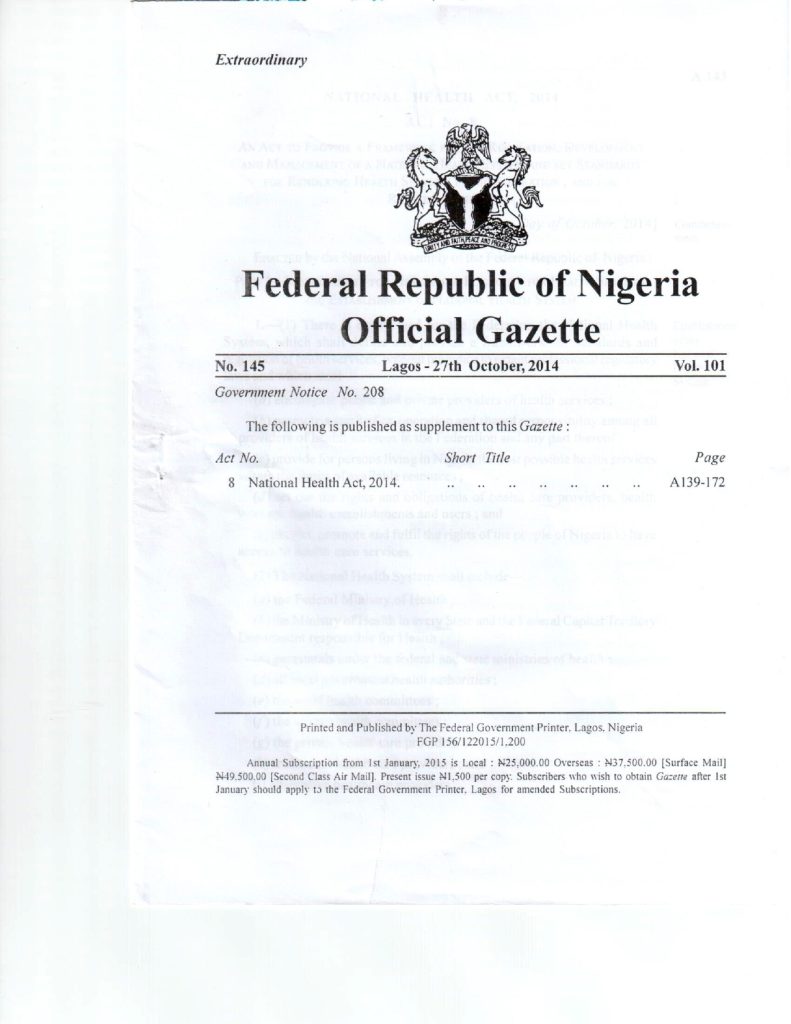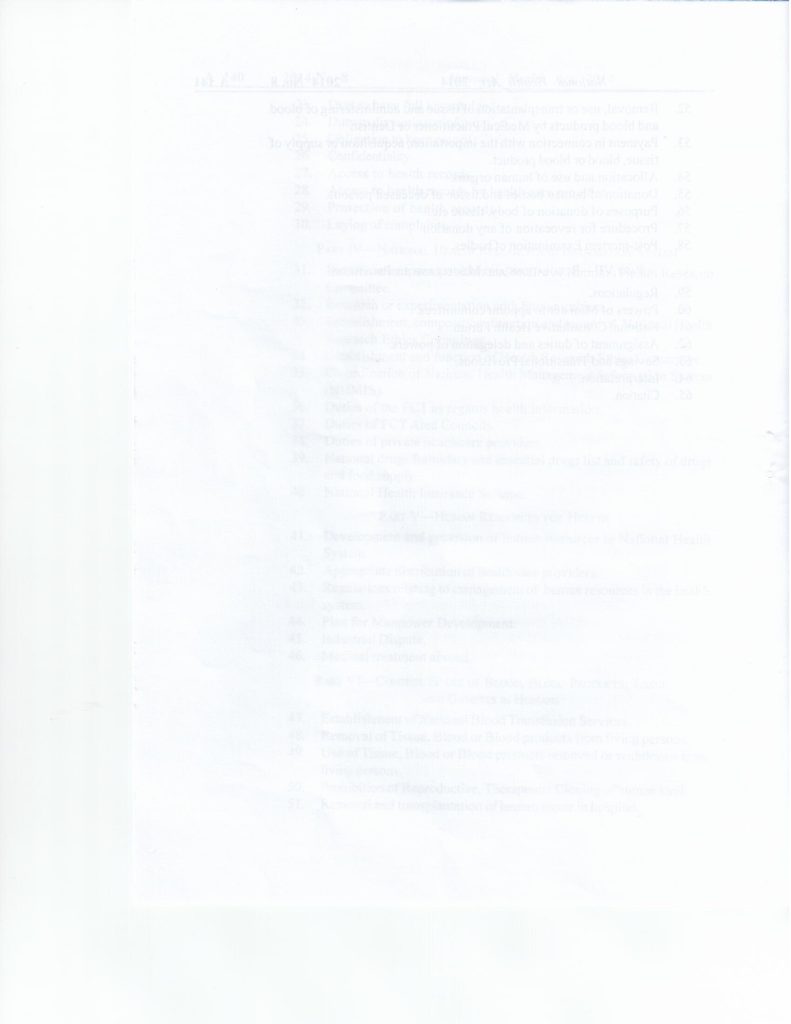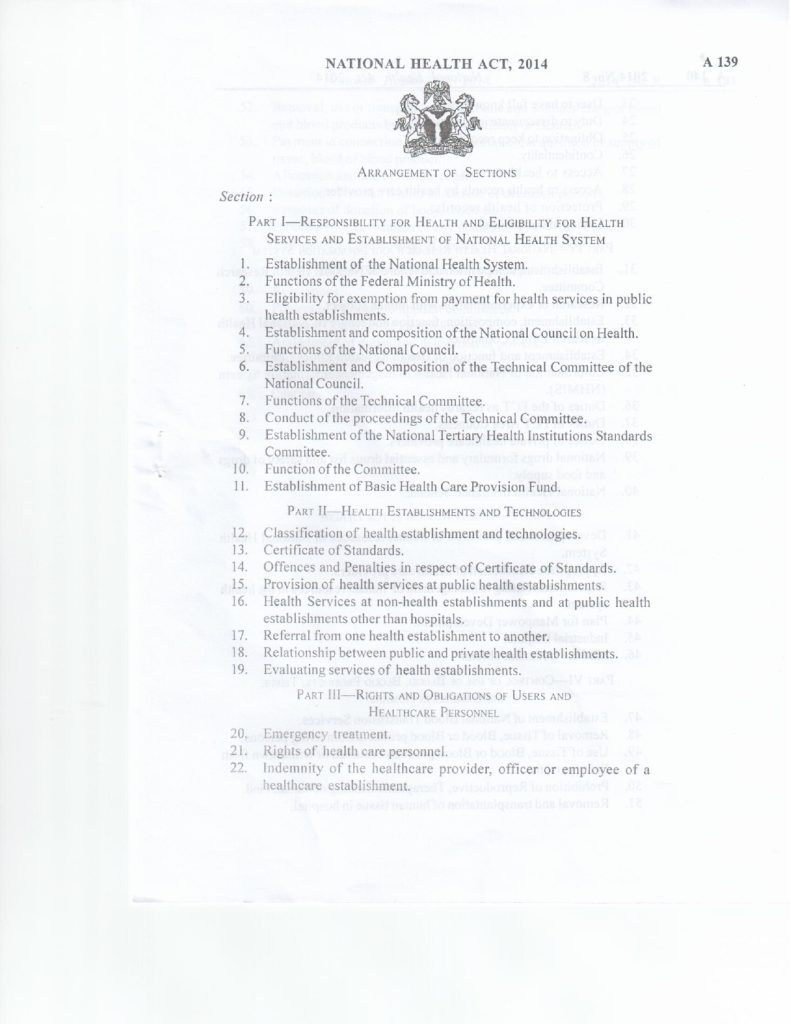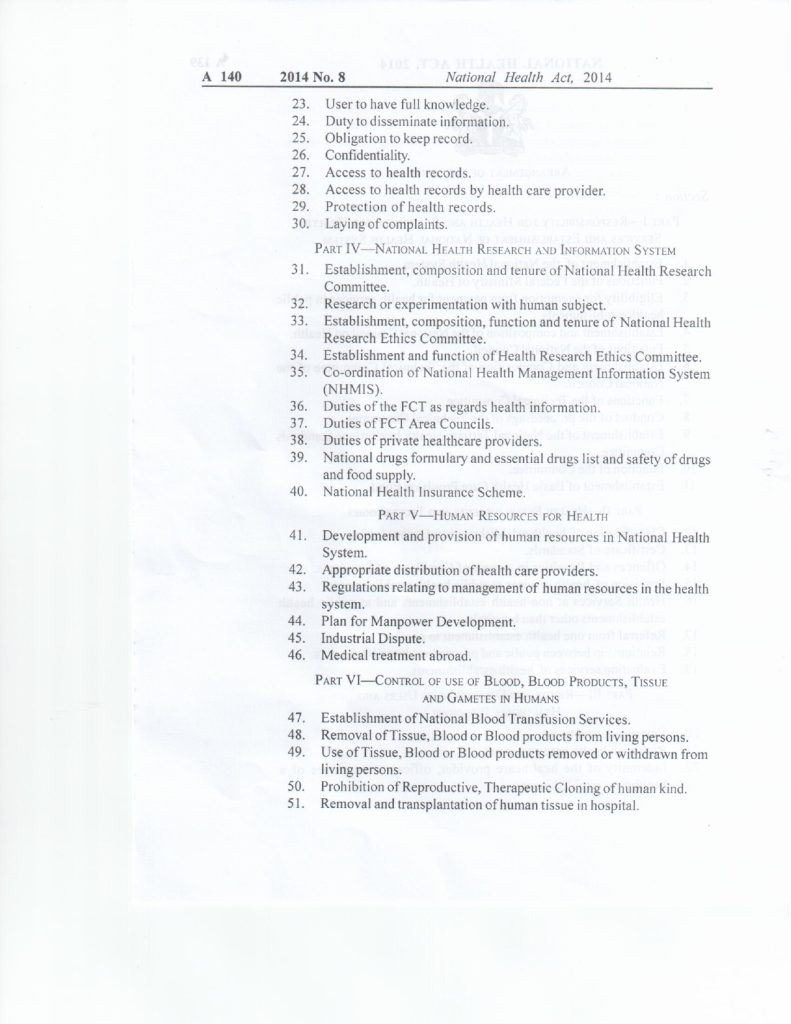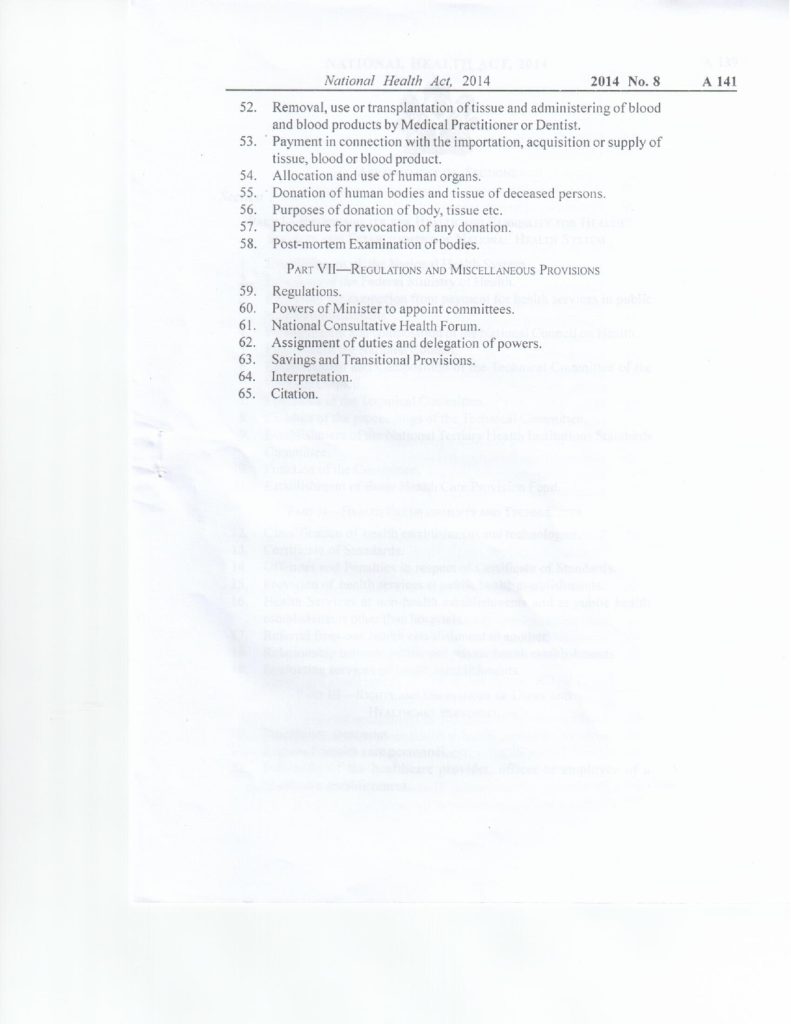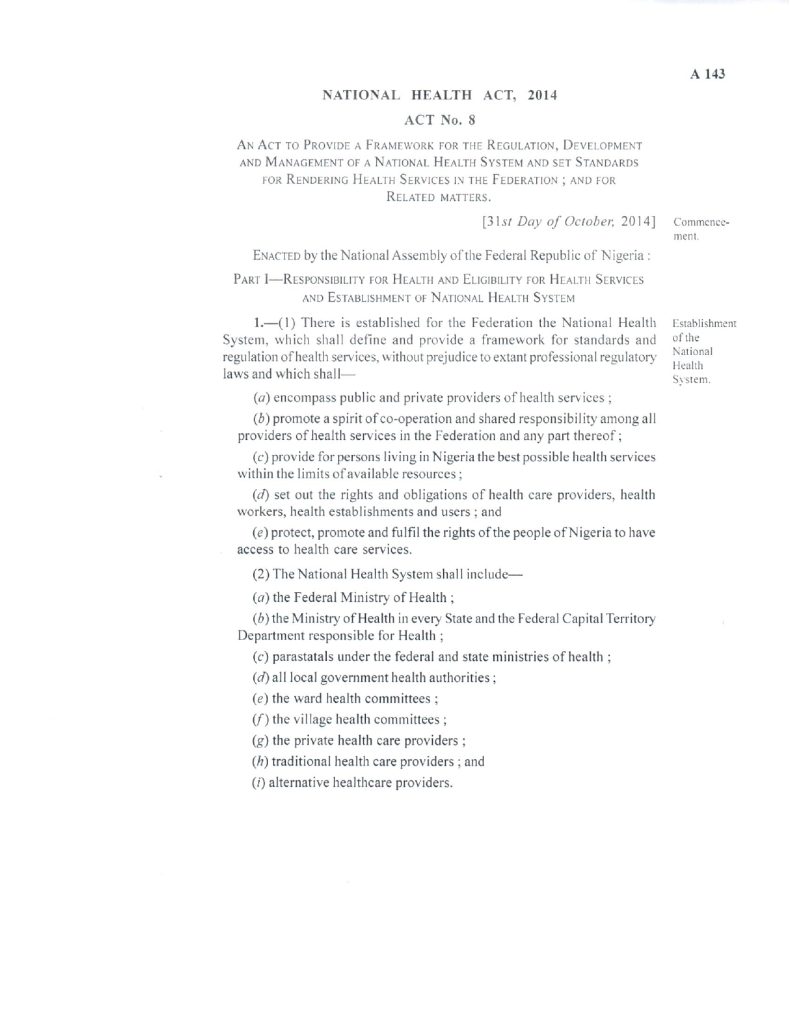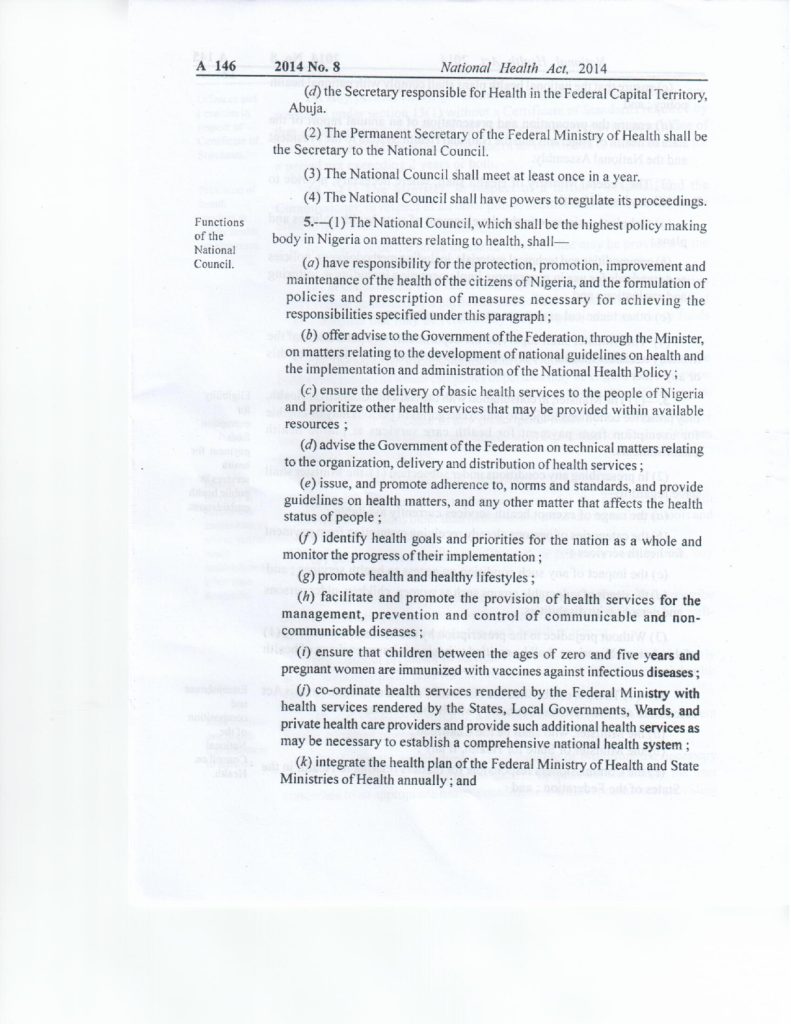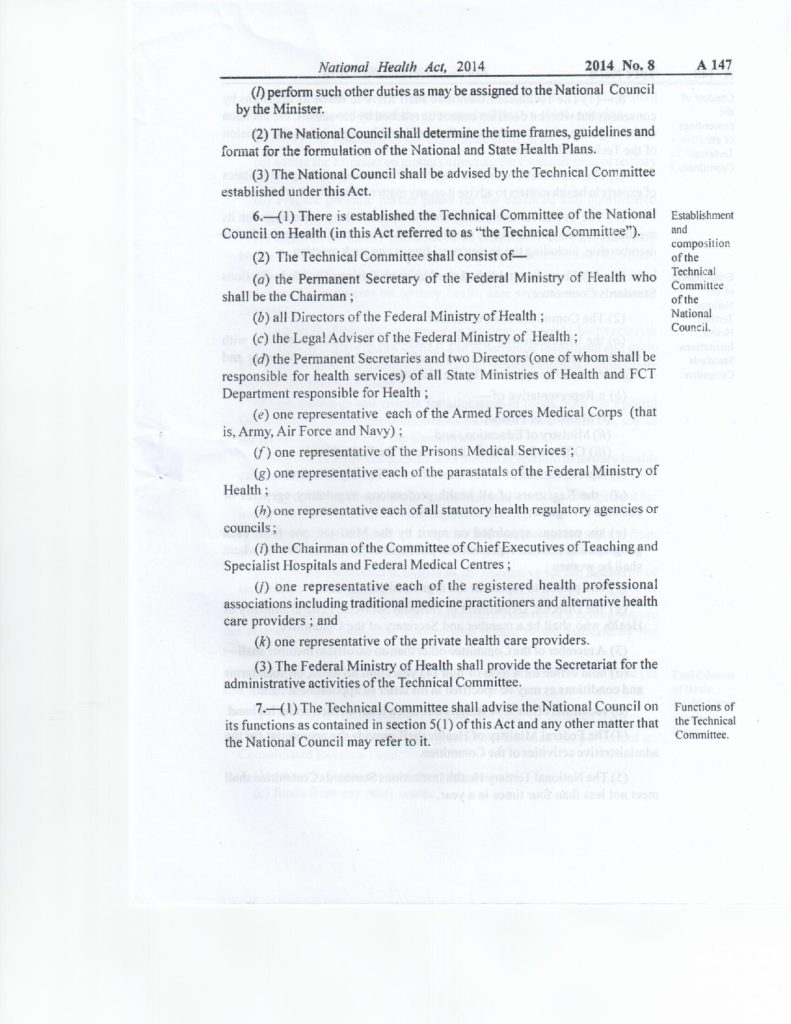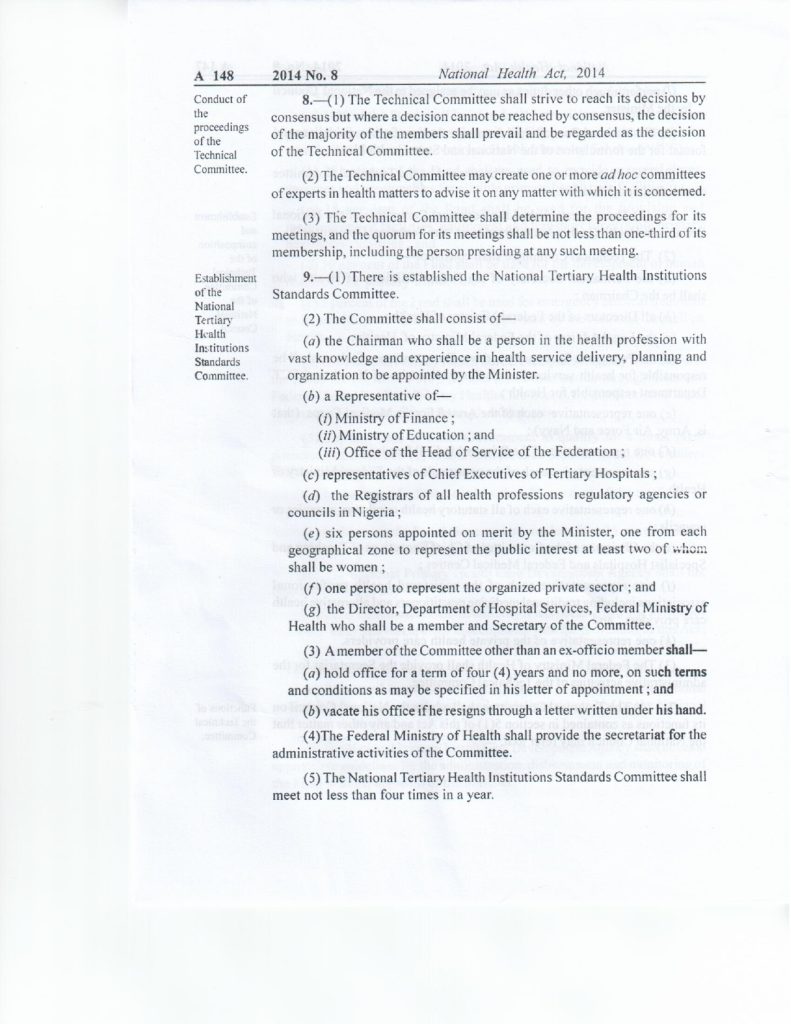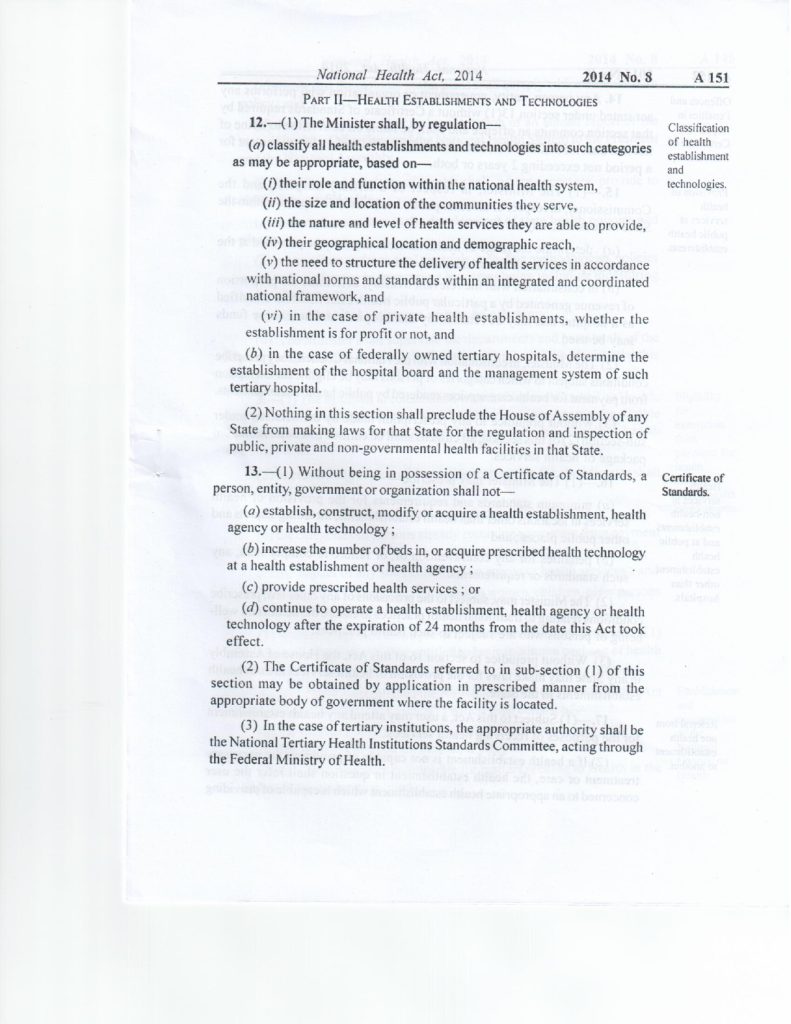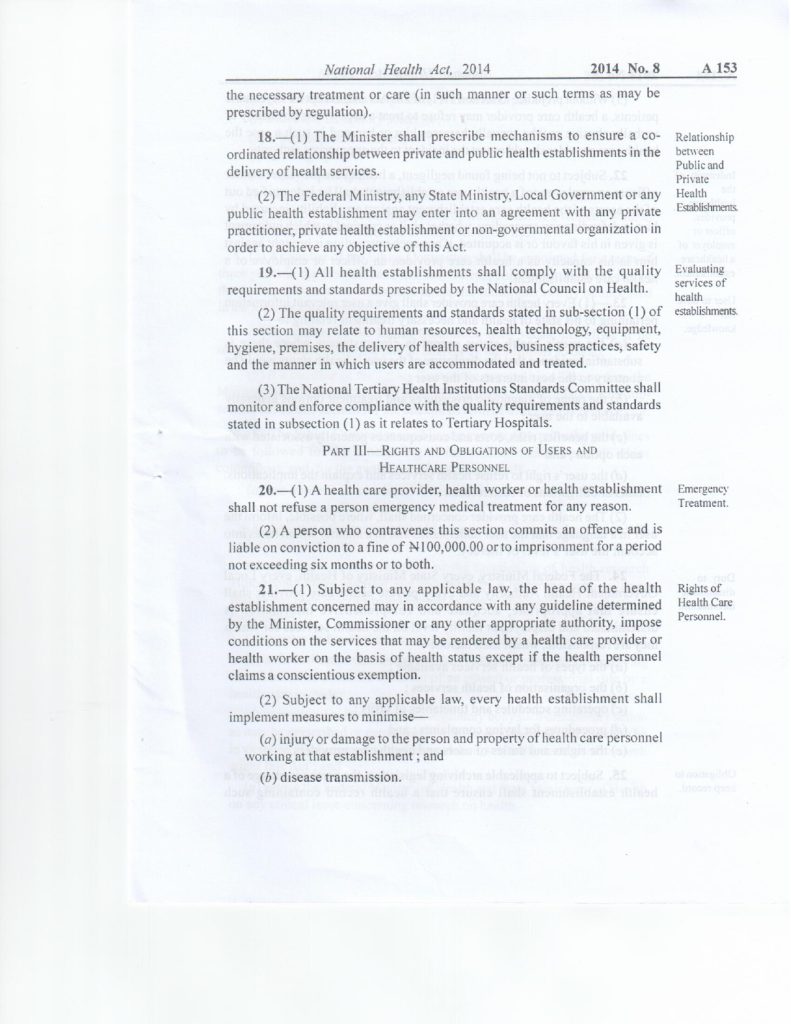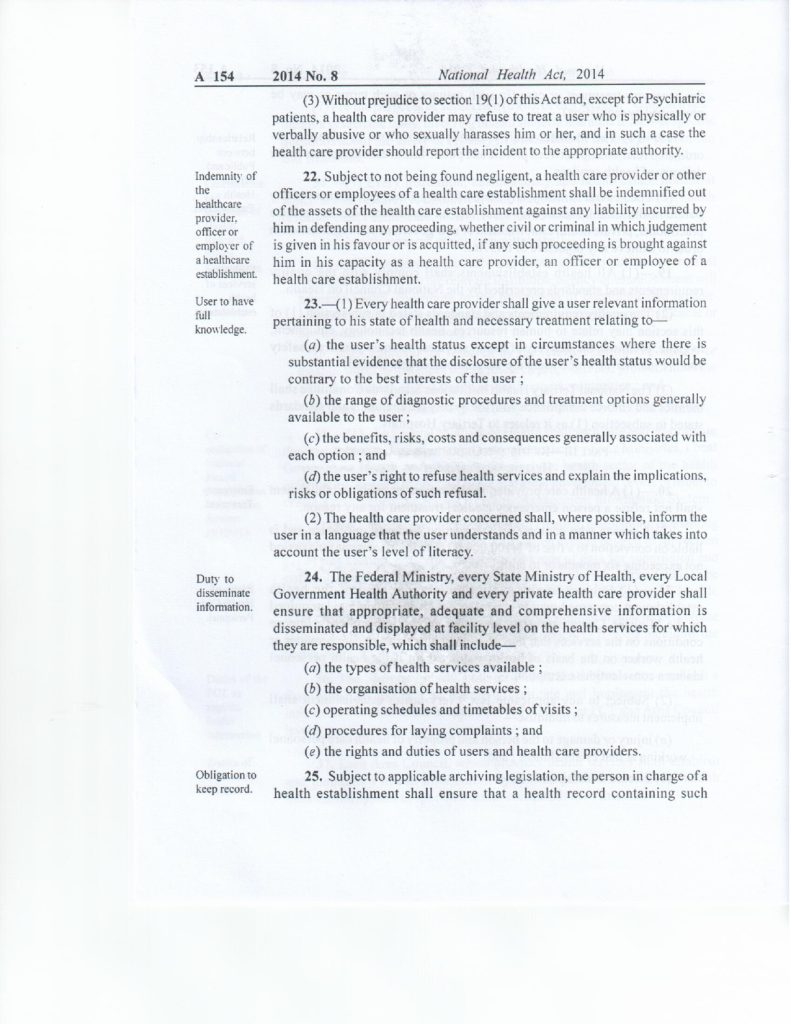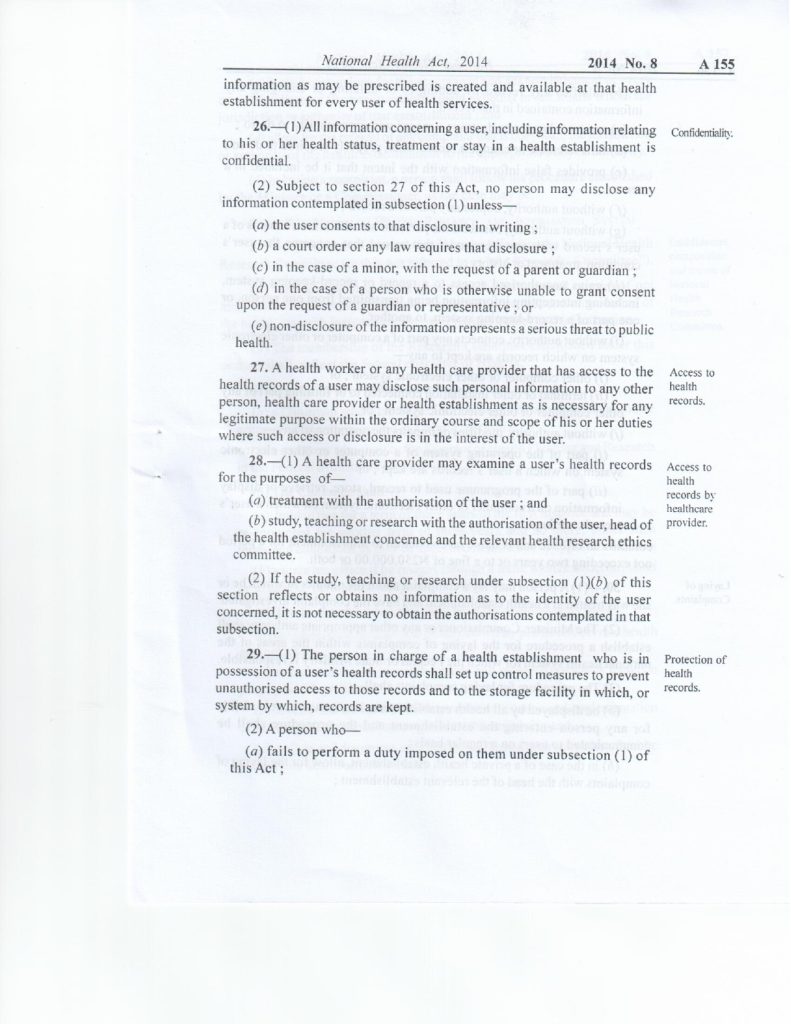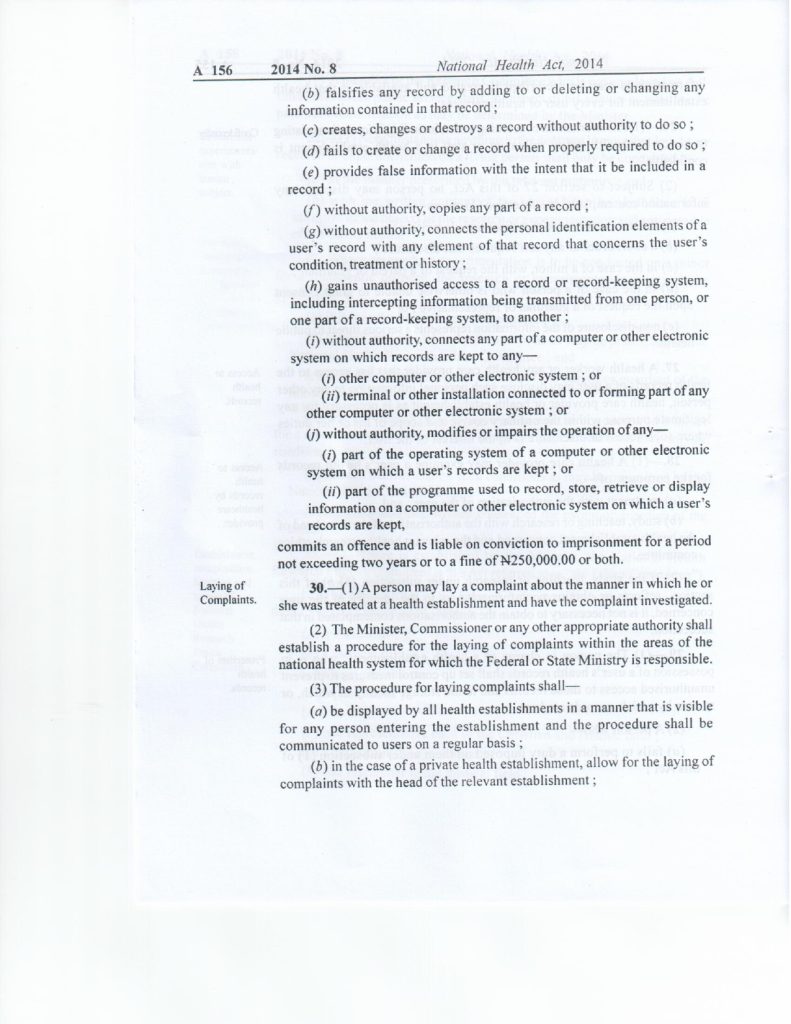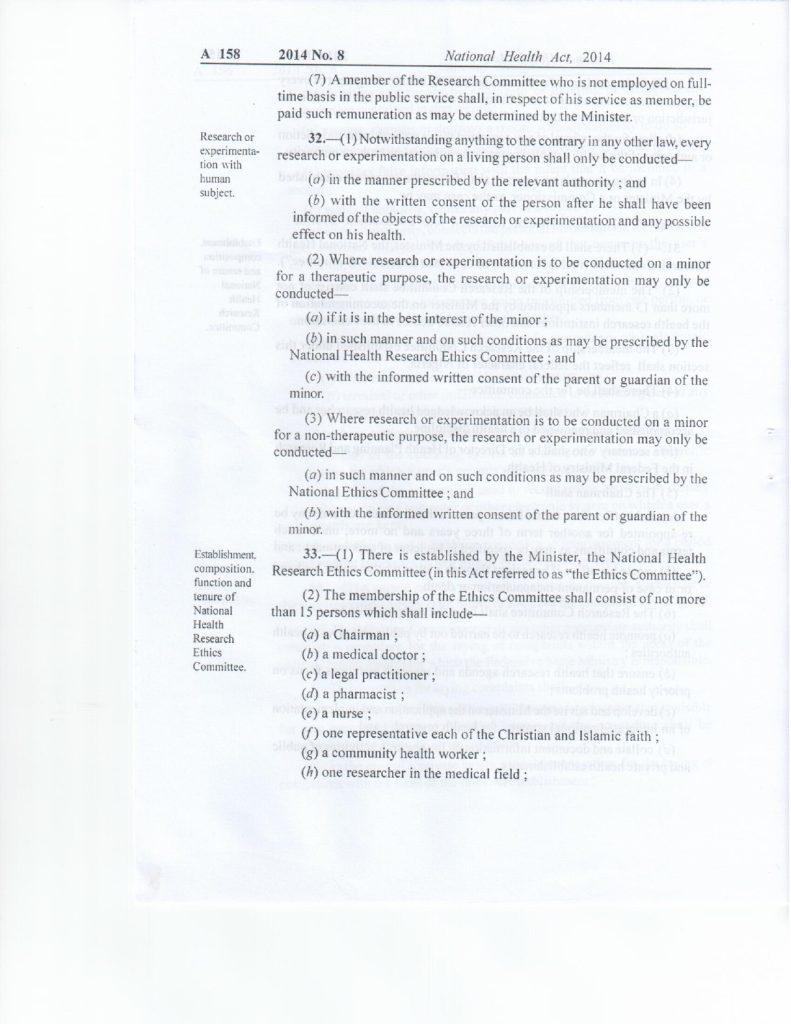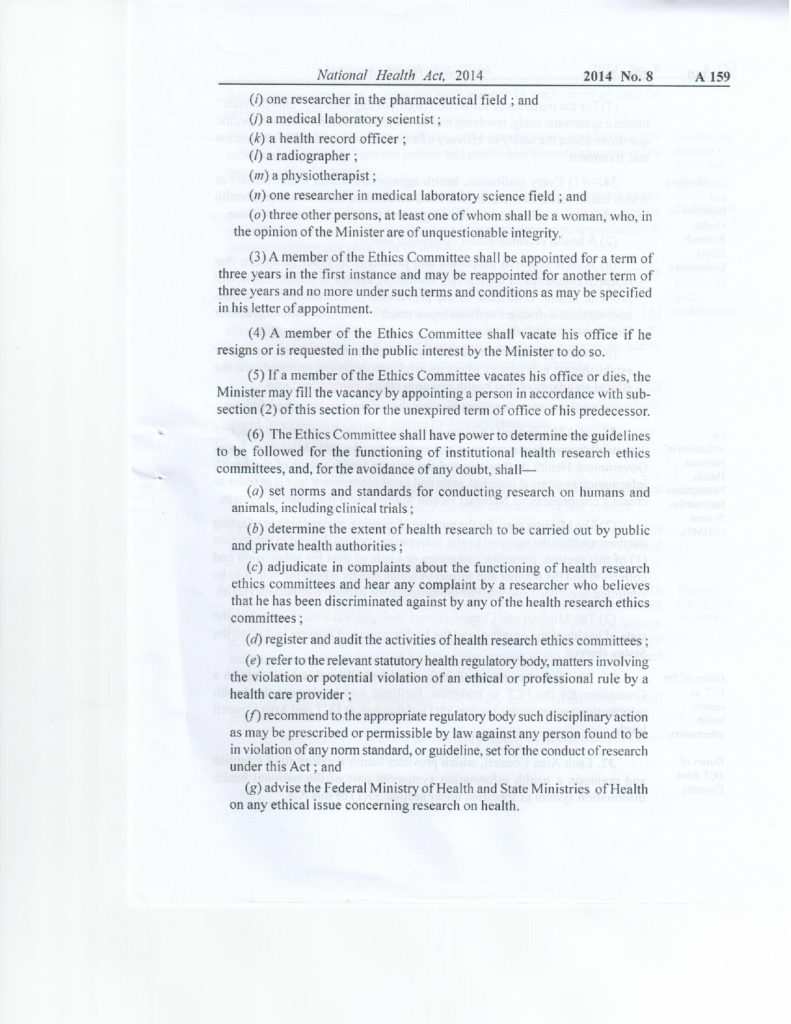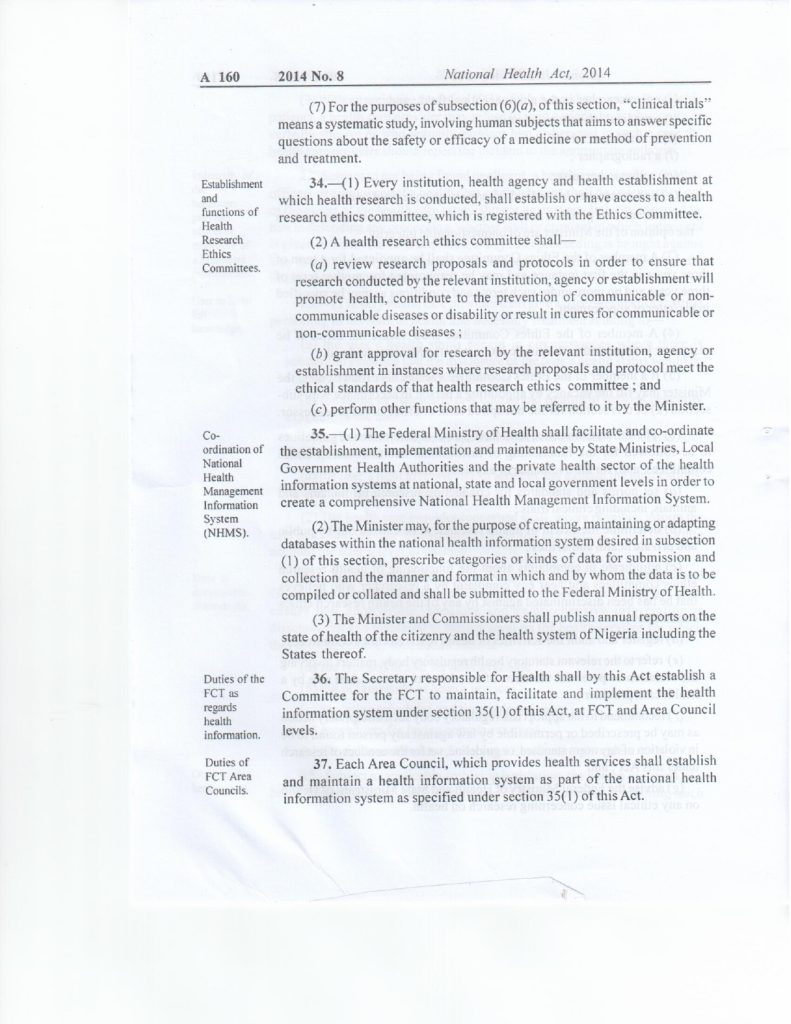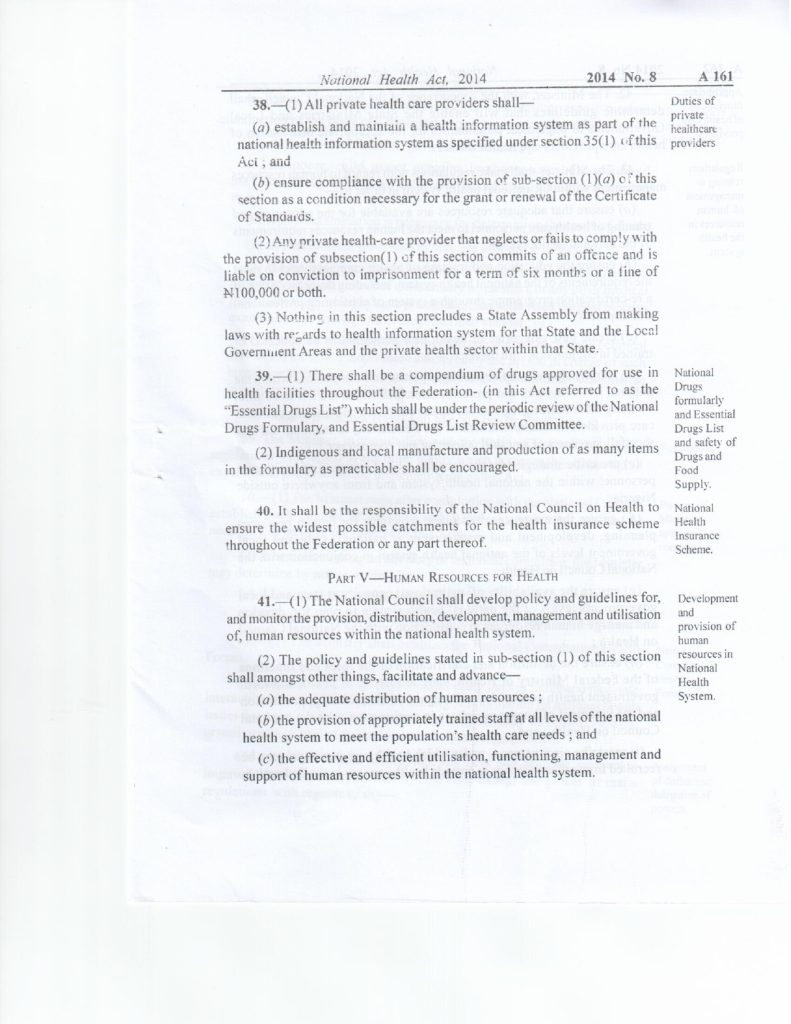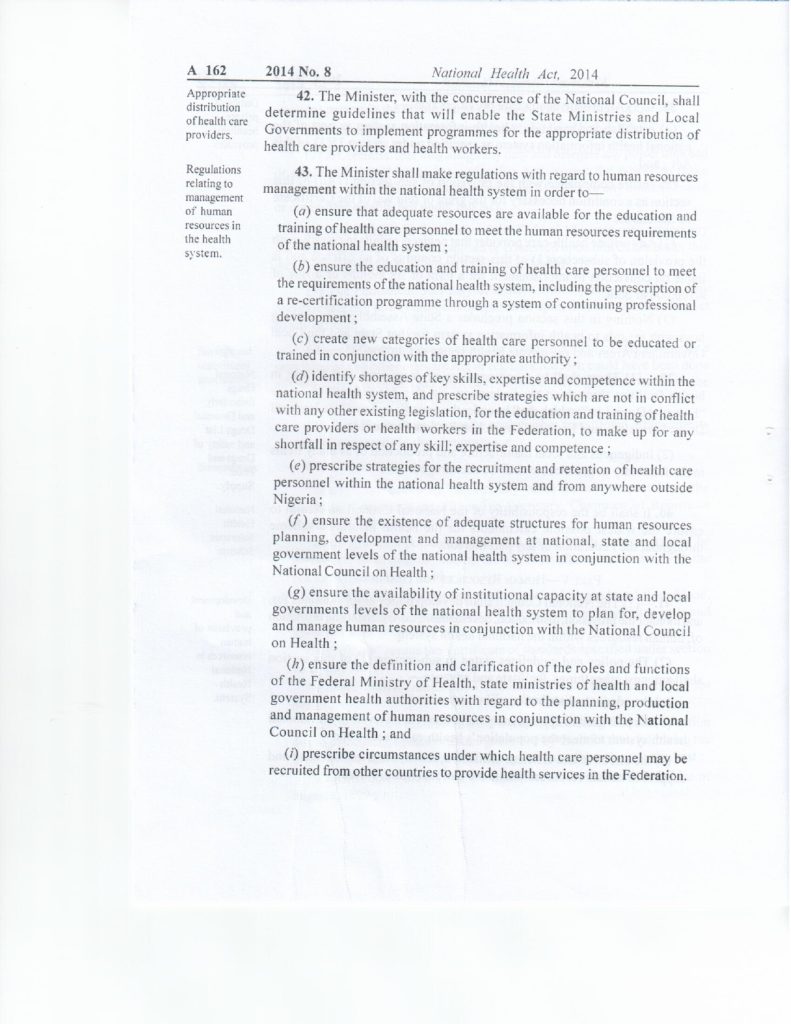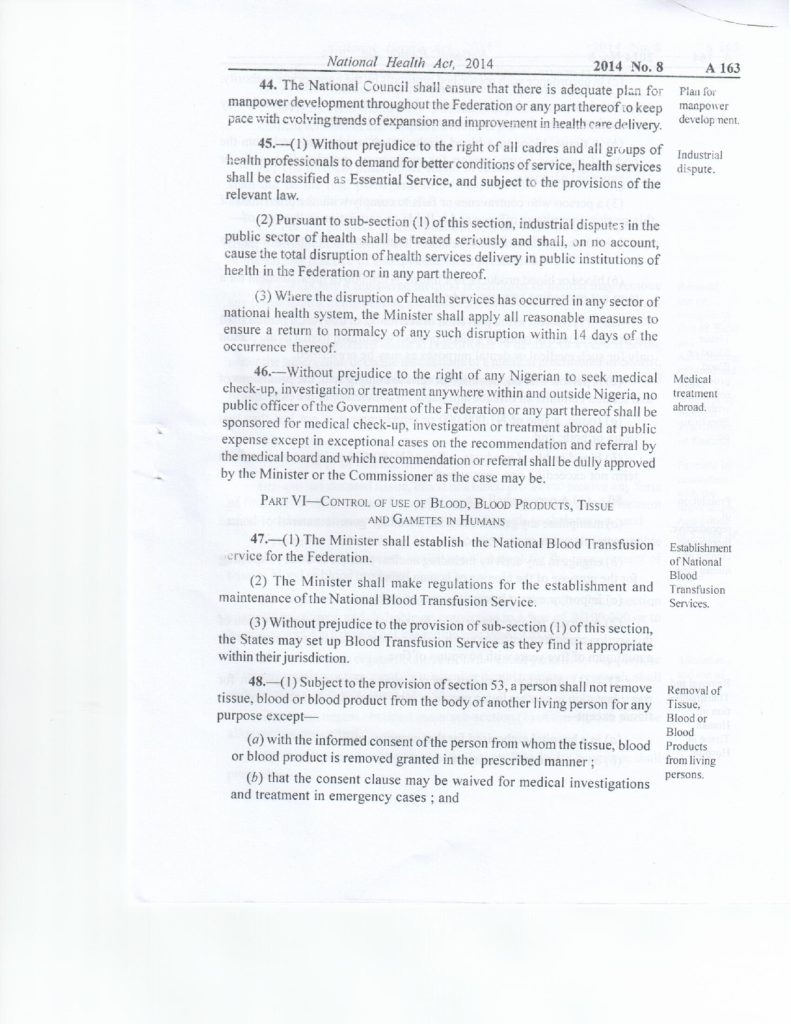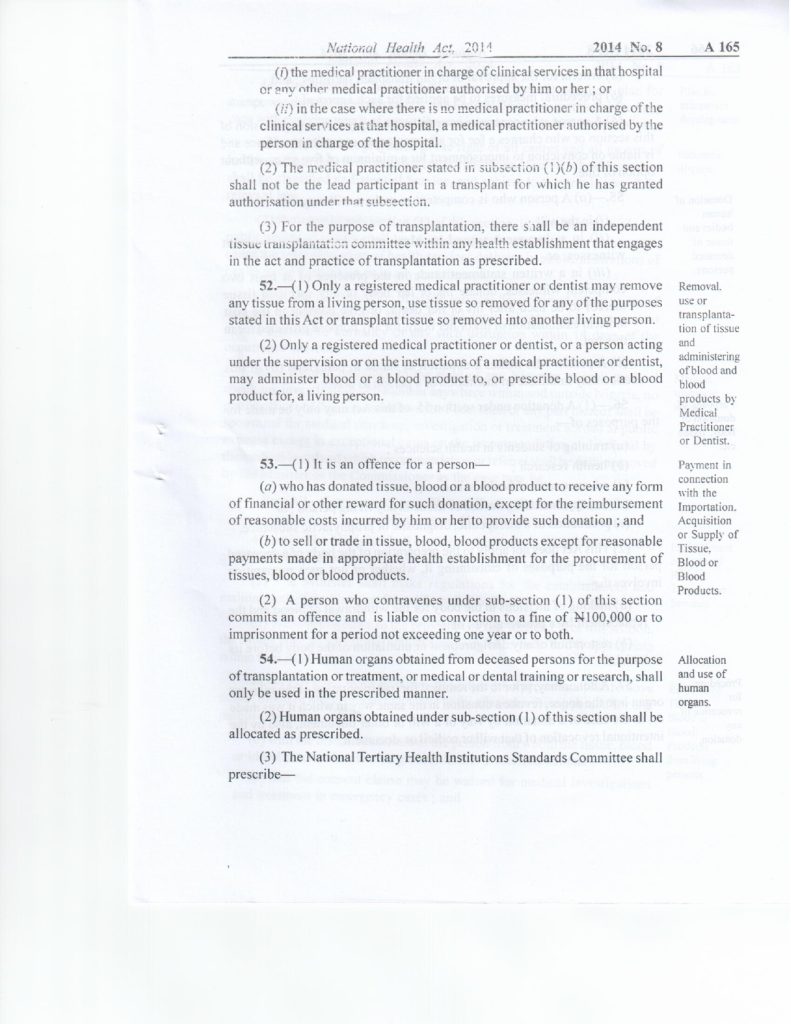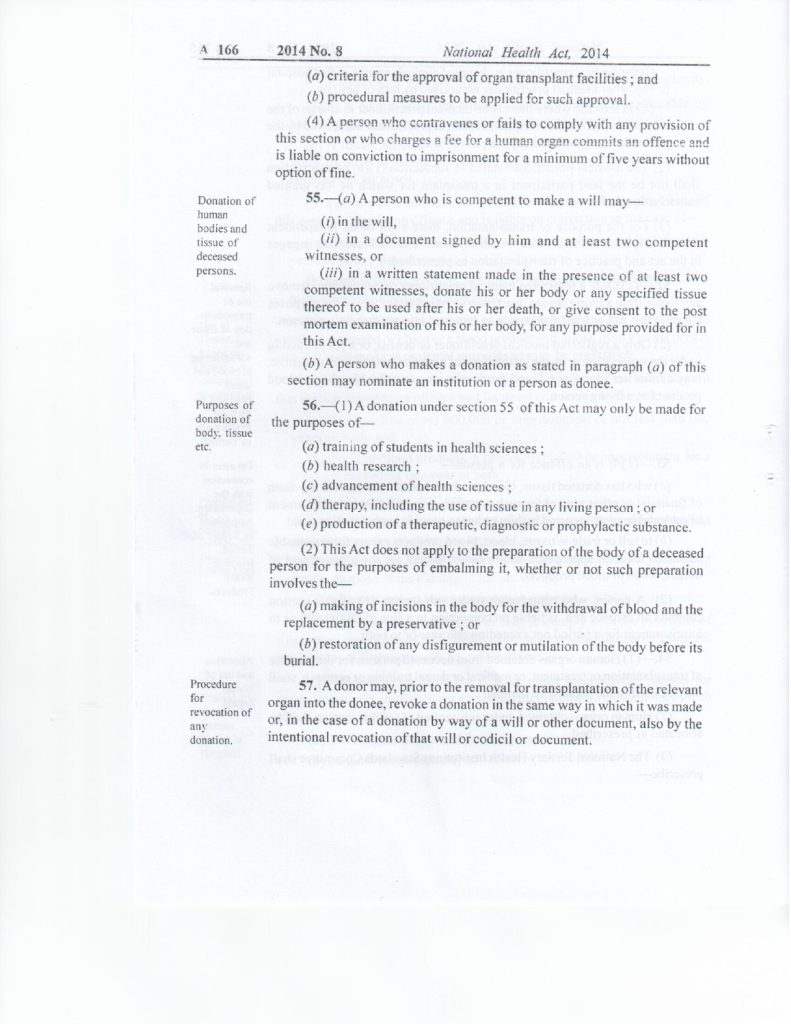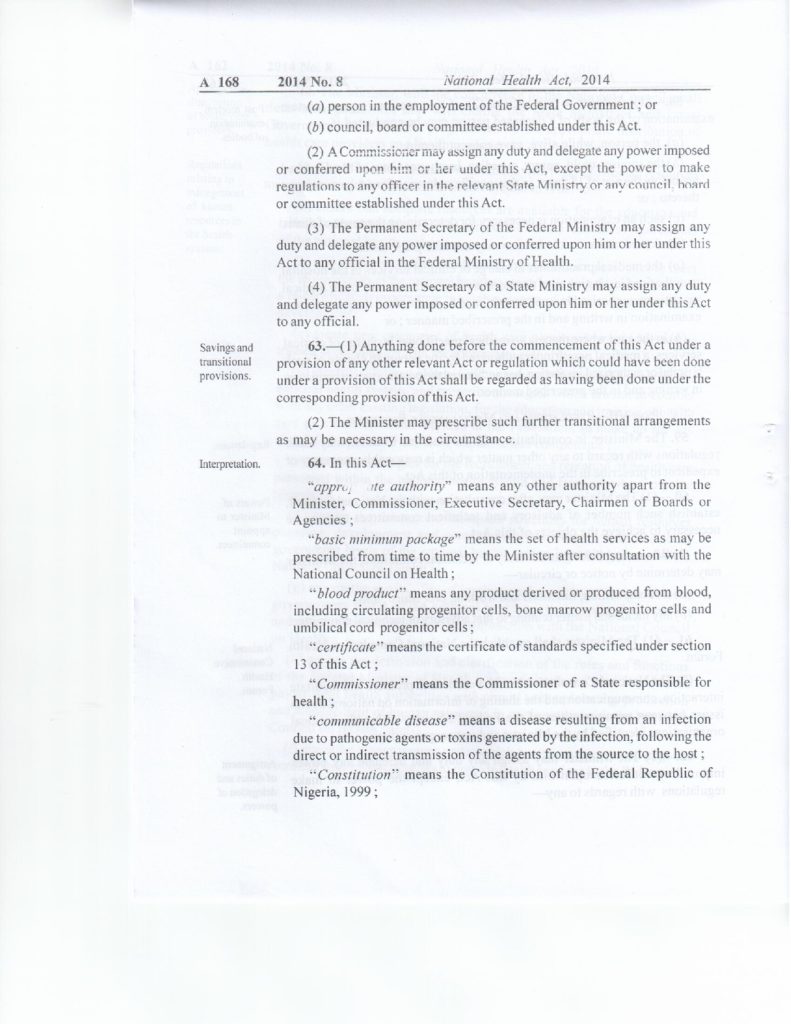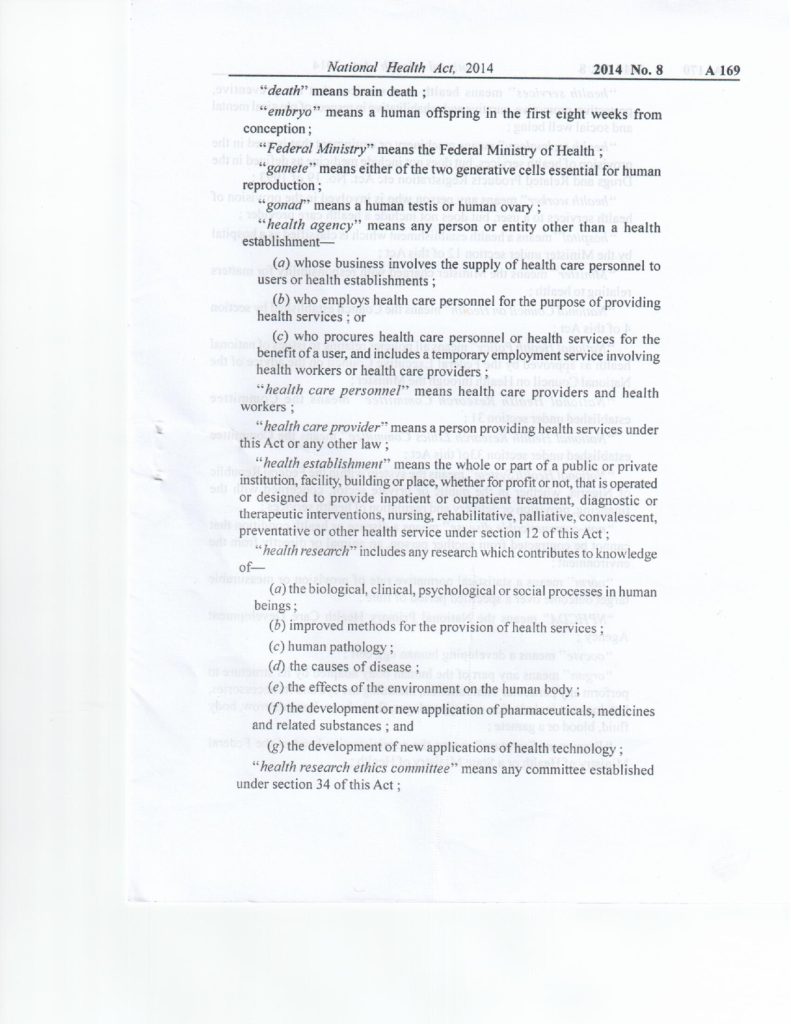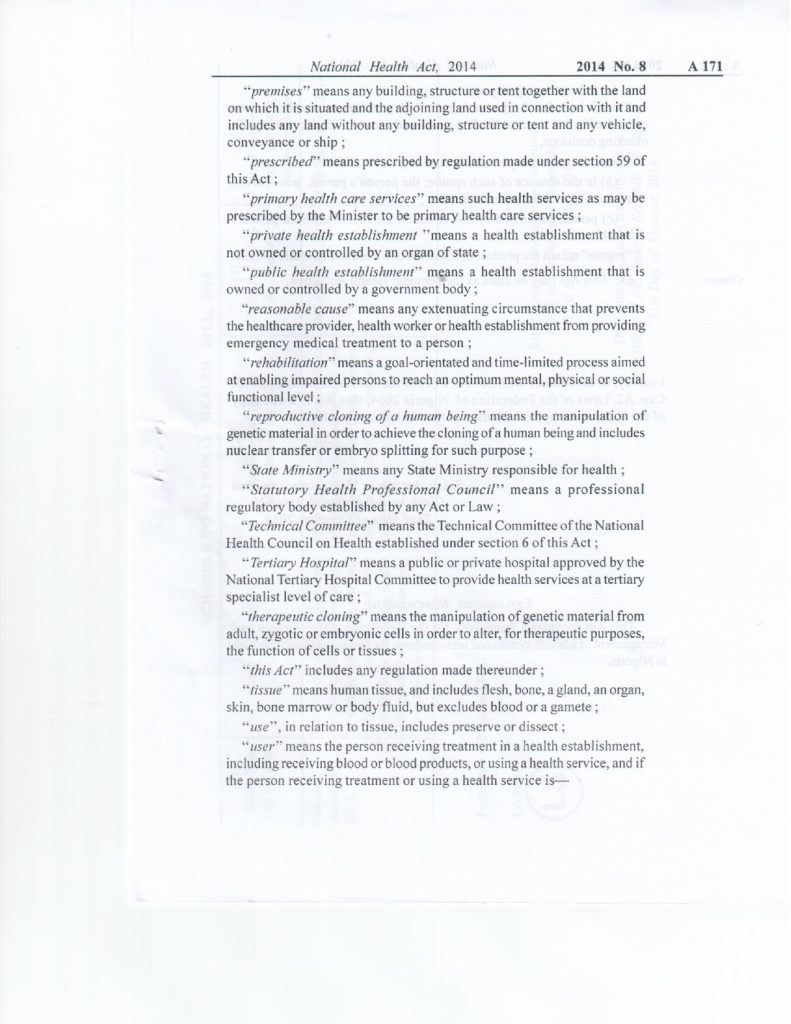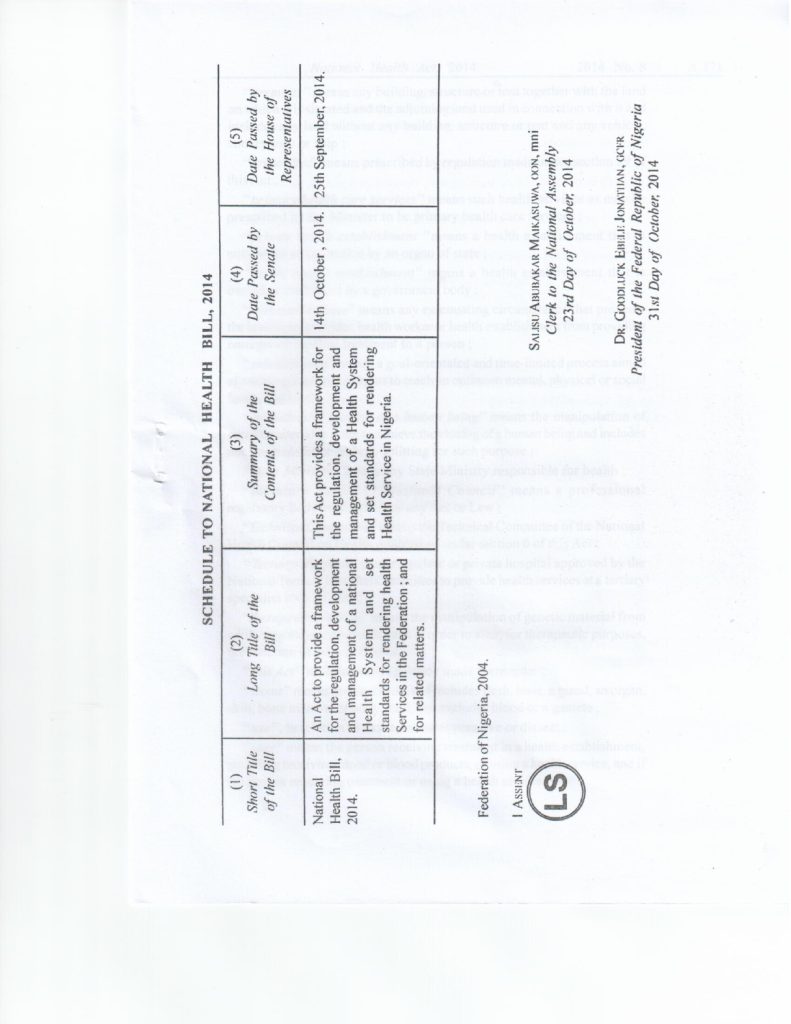Phillip Njemanze, an academician and medical doctor, has written to the Senate President, Senator Godswill Akpabio, lamenting “laws and bills that pose a threat to national security”
The letter obtained by this newspaper reads:
Global Prolife Alliance (GPA)
No 1 Uratta Road, P. O. Box 302, Owerri, Imo State, Nigeria 460242,
Phone 09039657129, email:info@chidicon.com; www.chidicon.com/AAAC.
16th June, 2023
Your Excellency,
Distinguished Senator Godswill Akpabio,
Senate President,
National Assembly Complex,
Three Arms Zone,
P.M.B, 141, FCT, Abuja, Nigeria
+234 9 234 0000, +234 9 234 0009, +234 9 523 4900
10th NASS Legislative Agenda: Laws Threatening National Security and Lives of Millions of Nigerians Must be Repealed
Executive Summary.
The laws and bills that pose a threat to the national security, food security, and the lives and property of the Nigerian people must be revoked. These laws and bills are supported by foreign billionaires who masquerade as philanthropists, operating through Nigerian proxy NGOs involved in bribery and corruption. These foreign sponsors hold racist and fascist views towards the African people, including those in the Federal Republic of Nigeria. Their agenda aims to annihilate and exterminate the Black population of Africa, disguised as new-age philanthropy. Initially, their philanthropic efforts were presented as a Polio eradication program, but their true intention was to infiltrate remote areas of Northeast Nigeria with their mercenary fighters, deceptively posing as polio eradicators alongside genuine medical personnel. They skillfully evaded military checkpoints and orchestrated attacks on farming communities without opposition from the Nigerian military. These mercenaries are trained by the billionaire sponsors who own a notorious private army based in the Sambisa Forest in Burkina Faso. Their primary objective is to perpetuate insecurity in Nigeria with the intention of destroying the Nigerian people, trafficking human organs for transplantation in their home countries, and exporting human ovarian eggs for the cloning of human organs. This human organ cloning industry is valued at 30 trillion USD, benefiting biotechnology companies. To achieve their goals, they require 100 million human ovarian eggs annually for a process called Somatic Cell Nuclear Transfer (SCNT) used in human organ cloning. This means that at least 20 million Nigerian women would be forcibly required to donate their ovarian eggs through in vitro fertilization (IVF) each year. However, many of these women may suffer from Ovarian Hyperstimulation Syndrome, leading to serious complications such as infections, kidney failure, liver failure, and potentially death within 2-3 years. The introduction of genetically modified organisms (GMO) crops, deceptively labeled as “improved seeds,” is part of their strategy to coerce Nigerian female farmers into donating their ovarian eggs in exchange for GMO seeds. This initiative is known as the “Egg-for-Food” program.
The international press has been used to falsely attribute the insecurity in Nigeria to Islam. However, data from the United States Council on Foreign Relations (CFR) between 2015 and 2018 reveals that out of 37,500 victims of Boko Haram, 32,000 or 85% were Muslims, while 5,500 or 15% were Christians or belonged to other religious groups. This suggests that Islamic terrorism is not the root cause, as more Muslims have lost their lives. Instead, it is evident that both Muslim and Christian victims were farmers who naturally grew seeds in their communities. The pseudo-philanthropists provided grants through the Federal Ministry of Agriculture and Rural Development (FMARD) to farmers for purchasing seeds from other farmers. To track the location of the farmer-seed growers, they distributed 14 million cell phones named “electronic wallets” to all farmers. These phones were equipped with precise GPS and NFC technologies, enabling the collection of personal data and exact locations of each farmer. By utilizing NFC technology, they gained access to all transactions made by high-output farmer-seed growers. This information was used to track and eliminate each farmer-seed grower using a specialized mercenary force trained by their private army. They burned the farmers and their homes where they cultivated natural seeds, while other farmers were forcibly relocated to Internally Displaced Persons (IDP) camps. During the resettlement process, their proxy NGOs distributed GMO seeds labeled as “improved seeds.” The farmers were coerced into planting these GMO seeds, becoming dependent on biotechnology companies for a continuous supply of GMO seeds every planting season since Nigerian farmers cannot replicate these seeds. This criminal act allows them to gain control over Nigeria.
The billionaire pseudo-philanthropist has a legislative agenda to pass bills and laws through the NASS aimed at achieving the following objectives:
- Removing the influence of religion and tradition in Nigerian society using two instruments of the law: the Gender and Equality Law of 2016 and the Violence Against Persons Prohibition Law of 2015.
- Hijacking the food security of the Federal Republic of Nigeria by permitting genetically modified organism crops, using the instrument of the law: the National Biosafety Management Agency (NBMA) 2015 Act.
- Trafficking in human organs and human ovarian eggs using the instrument of the law: the National Health Act of 2015.
The genuine solution to address this issue lies in the repeal of all laws that serve as tools for these malicious schemes. Unfortunately, the previous administration failed to take this action, resulting in an escalation of violence, as those behind these plans believe that as long as these laws remain in effect, Nigeria is destined for destruction. We will thoroughly analyze the provisions of these laws and assess how these objectives were incorporated into legislation sponsored by a foreign billionaire pseudo-philanthropist through his foundation and proxy NGOs. - Gender and Equal Opportunities Bill 2016 (Not Passed but Re-presented): legalizes same-sex marriage, abortion, bans the Holy Bible and Holy Koran, bans traditional kingship for men, bans Catholic male-only priesthood, insists on women as Emirs and Ezes, closes all-male schools and seminaries, closes all-female schools and convents
Section 2(a)(b)(c) Prohibition of Discrimination: 2.-(a) No person, organ or agency of government, public and private institution, commercial or corporate body shall either through words spoken, acts, inactions, omissions, laws, regulations, administrative procedures, policies, guidelines, rules, customs or practices discriminate against any person on the ground of gender, age or disability; (b) Any law, regulation, custom or practice, which constitutes discrimination, shall be null and void and of no effect and shall not be enforceable against any person; (c) No rule or directive of an organ or agency of government, public or private institution, corporate, social or communal entity which is a violation of the provisions of this Bill shall be enforced against any person.
Interpretation: Section 2(a) mandates that the Sokoto Sultanate crown a woman as the Sultan of Sokoto and head of all Muslims in Nigeria. Catholic and Anglican Churches must ordain women as priests.
Section 5. Every organ or agency of government, public or private institution, commercial or corporate body, community, or other social entity, including educational institutions shall have the responsibility to modify the social and cultural patterns of conduct of men and women, with a view to achieving the elimination of gender stereotyping, prejudices, and customary and all other practices which are based on the idea of the inferiority or the superiority of either of the sexes, or the roles for men and women, and to this end: (i) every public or private educational institution shall ensure the adoption of appropriate teaching methods and curriculum including provision of facilities that emphasise the promotion of equality of all sexes in all circumstances and for all purposes, including choice of career, equal participation and inclusion of all persons in all activities of the school or institution;
(ii) the family as a unit of society shall ensure that values, practices or other forms of upbringing of children, ward and young people in the family and community, or other forms of socialisation, is not discriminatory, and promotes a proper understanding of maternity as a social function and the recognition of the common responsibility of men and women in the upbringing and
development of their children;
Interpretation: The bill bans the use of the Holy Bible and Holy Koran, as both preach separate roles for men and women in schools by mandating the “elimination of gender stereotyping in the curriculum.” This means that no books that promote separate roles for women and men in a family can be used in schools. Section 5 also outlaws the religious basis of Sharia and customary courts. Section 5(i) promotes female Catholic priesthood, female Ezeship, female Emirship, and Sultanship by mandating “the promotion of equality of all sexes in all circumstances and for all purposes, including the choice of career,” without exemptions for the religion and customs of the Nigerian people. Section 5(ii) promotes the idea of same-sex marriage in the upbringing of children in the family by maintaining that “maternity is a social function” that can be performed by either a male or female person.
Section 7 (b) The elimination of any stereotyped concept of the roles of men and women at all levels and in all forms of education by encouraging coeducation and other types of education which will help to achieve this aim;
Interpretation: Section 7(b), by mandating the “elimination of any stereotypes concept of the roles of men and women at all levels and in all forms of education,” would effectively outlaw religious schools that are exclusively for males or females. This means that male-only seminaries, as well as female-only convents or schools, would no longer be permitted in Nigeria. This provision would have a significant impact on Christian, Islamic, and traditional African religions in Nigeria, potentially disrupting their established practices and structures.
Section 8. Every organ or agency of government, public or private institution, commercial or corporate body shall take all appropriate measures to eliminate discrimination against women in the field of employment, occupation or profession, in order to ensure, on a basis of equality of men and women, and without prejudice to the provisions of section 4 of this Bill.
Interpretation: Section 8 mandates the “elimination of discrimination against women in the field of employment, occupation, or profession,” without providing an exemption clause for religion and traditions. Professional roles such as priesthood, sultanship, and ezeship fall within this scope. Therefore, under this law, women could choose to pursue these roles, as there are no provisions for exemptions based on religion or tradition.
Section 8(g) The right of everyone to the protection of the person’s health including maternal health, and to the person’s safety in the work place, including the safeguarding of the function of, and choices in, reproduction and maternal or paternal responsibilities, and no rule, regulation or policy of any organ or agency of government, public or private institution, commercial or corporate body, or other entity shall limit or restrict or otherwise strictly regulate the period or conditions, an employee undertaking maternity leave or other advantages in the workplace relating
thereto.
Interpretation: Section 8(g) provides the right to the protection of a person’s health and choices in reproduction and maternal or parental responsibilities. This provision could be interpreted as legalizing abortion, as it allows a woman to choose abortion as a means of protecting her health.
Section 9(a) Every organ or agency of government, public or private institution, commercial or corporate body shall prevent discrimination against women on the grounds of marriage, marital status, or maternity;
Interpretation: Section 9(a) could be interpreted as requiring the Nigerian Army to admit married women into serious combat roles, even if it goes against existing guidelines. It may also imply that the Church must allow married women, homosexual individuals, and transgender individuals to become priests, disregarding the traditions of the Church. Furthermore, the Emirate and Sultanate may be obligated to crown married women under this provision.
Section 10(a) mandates corporations and in Section 10(b) private institutions to provide free healthcare services to women who are pregnant and within 2 years of delivery.
Interpretation: This is impractical because the costs must be covered under the Universal National Health Insurance Scheme.
National and State VAPP Laws 2015 have statues that accomplish the following: (1) legalizes Abortion; (2) recognises Civil Unions and legalizes Same-Sex Marriages, that will destroy the traditional Nigerian family; (3) bans use of Holy Bible and Holy Koran in public; (4) ordains Women as Priests of the Holy Catholic Church and crowns women as kings of Nigerian Communities; (5) designed to gag all voices of good moral teachings; (6) destroys the Marriage Act of union between a male person and a female person; (7) accused Perpetrator is Guilty until Proven Innocent; (8) charges preachers with Sexual Abuse; (8) accuses Bishops, Priests, Pastors and Imams of Sexual Violence; (9) imprisons Parents for scolding their children for sexual immorality; (10) Spouse under the VAPP Law includes Same-Sex couples and Trans-Sexuals.
- National Health Act 2014 (passed into Law)
We will address the contentious sections of the NHAct (Sections 13, 20, 43, 45, 48, 51, 53, 58, and the definition of gametes) and highlight the pitfalls that are evident to anyone applying common sense.
The NHAct 2014 PROMOTES POACHING OF HUMAN ORGANS FROM NIGERIANS:
Section 51:
The Act in Section 51 states that: (1) A person shall not remove tissue from a living person for transplantation in another living person or carry out the transplantation of such tissue except:-
(a) in a hospital authorised for that purpose; and
(b) on the written authority of: (i) the medical practitioner in charge of clinical services in that hospital or any other medical practitioner authorised by him or her; or (ii) in the case where there is no medical practitioner in charge of the clinical services at that hospital a medical practitioner authorised thereto by the person in charge of the hospital.
(2) The medical practitioner stated in subsection (1)(b) shall not be the lead participant in a transplant for which he has granted authorisation under that subsection.
(3) For the purpose of transplantation, there shall be an independent tissue transplantation Committee within any health establishment that engages in the act and practice of transplantation as prescribed.
Interpretation: Section 51 of the National Health Act 2014, which deals with transplantation, is deemed irrelevant to health system regulation. Typically, transplantation laws are addressed separately from health framework laws. The inclusion of these provisions in the NHAct 2014 was motivated by the interests of foreign sponsors involved in human organ and ovarian egg trafficking. However, it is important to note that the primary subjects of any transplantation surgery are the donor (who provides the organ) and the recipient (who receives the organ).
In Section 51, there should have been acknowledgment of the rights and obligations of both the donor and the recipient. However, the drafters of the act chose to prioritize the rights of the health administrator, who has no personal stake in the matter. This goes against the fundamental legal principle of “nemo dat quod non habet,” meaning “you cannot give what you do not have.” In other words, a doctor cannot authorize the transplantation of another person’s organ. Unfortunately, the NHAct 2014 overturned this universally recognized legal principle, granting doctors/administrators power over the right to life of another person, the donor. This constitutes a significant violation of the donor’s Fundamental Right to Life and breaches the Fundamental Rights Section of the 1999 Constitution of the Federal Republic of Nigeria.
Section 51 is null and void and holds no legal effect. It was intentionally worded to favor the Organ Trafficking Cartel, who own the hospitals licensed for transplantation, including 260 foreign-owned hospitals sponsored by the Billionaire Foundation. These same individuals would be able to decide that a Nigerian’s organ be taken without even seeking their consent. The NHAct 2014 permits their doctors to collect organs without the owner’s consent. During the public hearings for the National Health Bill (NHBill), all stakeholders demanded that Section 51(b) explicitly state “on the written informed consent of the patient (donor).” Administrative instructions by the hospital management regarding transplantation should only be applicable with the patient’s informed written consent.
The Association of Catholic Medical Practitioners of Nigeria (ACMPN) presented a memo during the public hearing, arguing against these controversial provisions of the NHAct 2014. All speakers rejected the argument made by the Senate Committee on Health that Section 48 provided for “informed consent.” To record the opposition, the Senate Committee called for a voice vote, and the amendment was overwhelmingly accepted to be inserted in Section 51.
The current wording of Section 51 represents a significant violation of the Helsinki Declaration on human subject written informed consent for medical procedures and research. It also violates Article 3 of the UN Universal Declaration on Human Rights and Article 33 of the 1999 Constitution of the Federal Republic of Nigeria, which protects the Fundamental Right to Life. These violations of the Helsinki Declaration and UN Universal Declaration on Human Rights are severe and could result in sanctions against Nigeria, including the suspension of its privileges as a UN member state. Nigeria’s human rights record could be downgraded as a result.
B. NHAct 2014 PROMOTES HUMAN ORGAN POACHING WITHOUT CONSENT
Argument by Proponents: The proponents of the law say that, in Section 48 there is a provision for DONOR consent.
Let us examine Section 48: (1) Subject to the provision of section 53, a person shall not remove tissue, blood or blood product from the body of another living person for any purpose except; (a) with the informed consent of the person from whom the tissue, blood or blood product is removed granted in prescribed manner; (b) that the consent clause may be waived for medical investigations and treatment in emergency cases; and (c) in accordance with prescribed protocols by the appropriate authority.
(2) A person shall not remove tissue which is not replaceable by natural processes from a person younger than eighteen years. (3) A tissue, blood or a blood product shall not be removed from the body of another living persons for purpose of merchandise, sale, or commercial purposes.
(4) A person who contravenes the provisions of this section or fails to comply therewith is guilty of an offence and liable on conviction as follows: (a) in the case of tissue, a fine of N1,000,000 or imprisonment of not less than two years or both; and (b) in the case of blood or blood products, a fine of N100,000 or imprisonment for a term not exceeding one year or both.
D. NHAct 2014 PROMOTES SELLS OF HUMAN ORGANS FOR MONEY
SECTION 53:
Section 48 makes reference to Section 53. It is an Offence for a person:- 1(a) who has donated tissue, blood or a blood product to receive any form of financial or other reward for such donation, except for the reimbursement of reasonable costs incurred by him or her to provide such donation; (b) to sell or trade in tissue blood, blood products except for reasonable payments made in appropriate health establishment for the procurement of tissues, blood or blood products; (2) Any person found guilty of an offence under subsection (1) is liable on conviction to a fine of N100,000 (one hundred thousand naira) or to imprisonment for a period not exceeding one year or to both fine and imprisonment.
Interpretation: Section 53(b) states that it is legal to request “reasonable payments.” Therefore, the reader should consider what constitutes a “reasonable payment” for donating one of their kidneys. Could this cost be N10,000 or N10,000,000? The answer to this question reveals that the preferred option, which many people would consider reasonable for risking their life to donate a kidney, would be N10 million rather than N10,000. This clearly highlights the deceptive language used in the NHAct 2014 to legalize the trafficking of human organs for monetary gain. The ACMPN and other stakeholders raised this point in memos and presentations during the public hearing on the NHBill 2014. It was well appreciated by the Nigerians present, and the legislators promised to amend this section but failed to do so.
Secondly, while it may appear that selling organs is illegal under Section 53(a), it is explicitly legal for healthcare establishments to purchase organs under Section 53(b). This provision was included to absolve the hospitals associated with the Cartel from any legal liabilities in Nigeria.
E. NIGERIANS RECEIVE FREE EMERGENCY TREATMENT BUT LOSE THEIR ORGANS FOR TRANSPLANTATION TO FOREIGNERS
In the NHAct 2014, millions of Nigerians have their organs taken through deceptive means in exchange for purported FREE Emergency Treatment outlined in Section 20.
Section 20 (1) A health care provider, health worker or health establishment shall not refuse a person emergency medical treatment for any reason whatsoever.
Interpretation: However, since the law does not provide a clear definition of what constitutes an ’emergency,’ all medical conditions can be deemed emergencies under this legislation. Consequently, hospitals may admit numerous individuals under the guise of an ’emergency’ for free treatment, while these individuals may unknowingly pay with their organs.
Under Sections 48 and 51, the Medical Director has the authority to decide that a patient’s organ be taken for transplantation to another living person, referred to as an ‘Organ Transplantation Tourist.’ These foreign organ tourists have paid substantial sums of money, often hundreds of thousands of US dollars, to receive organs such as a young Nigerian’s heart through online transactions. Astonishingly, all of these transactions are perfectly legal according to the NHAct 2014.
F. NIGERIA IS A DANGER ZONE FOR TOURISTS, AND NO ONE IS IMMUNE TO HUMAN ORGAN POACHING
Interpretation: The NHAct 2014 grants permission for the illicit practice of organ poaching, which involves obtaining tissue-matched organs from individuals, regardless of their social or economic status, whether they are Nigerian citizens, tourists, or foreigners. In Nigeria, no one is exempt from the threat of organ poaching. Any person whose organ matches the requirements of the International Organ Trafficking Cartel could be targeted for their organs, under the false pretense of legality.
This situation represents a blatant violation of the International Human Rights Convention by the Nigerian government, as it jeopardizes the lives and rights of its citizens, as well as individuals passing through the country. Regardless of the purpose of admission, whether it be medical or otherwise, the NHAct 2014 grants the Medical Director the authority to authorize surgical procedures for organ transplantation from the patient to another individual based solely on tissue compatibility.
G. THE INTERNATIONAL HUMAN ORGAN TRAFFICKING CARTEL ARE NOT HELD ACCOUNTABLE UNDER NHAct 2014 FOR MURDER CRIMES
Under Section 51 of the NHAct 2014, the decision to poach organs from Nigerians and foreigners within Nigeria would technically be considered legal. In the event that a patient dies and their organs are harvested, the same Medical Director empowered by the NHAct 2014 is given the authority to determine whether or not an autopsy should be conducted to investigate any potential crimes committed at their hospital. This provision, outlined in Section 58, was strategically included by the International Organ Traffickers to shield themselves from prosecution.
Section 58: (1) Subject to subsection (2), a post mortem examination of the deceased person may be conducted if- (a) the person, while alive, gave consent thereto; (b) the spouse, child, parent, guardian, brother or sister of the deceased not below the age of eighteen (18) years in the specific order mentioned, gave consent thereto; or (c) such an examination is necessary for determining the cause of death. (2) A post mortem examination may not take place unless- (a) the medical practitioner in-charge of clinical services in the hospital or authorised institution or of the mortuary in question, or any other medical practitioner authorised by such practitioner has authorised the post mortem examination in writing and in the prescribed manner; or (b) In the case where there is no medical practitioner in-charge of clinical services, a medical practitioner authorized by the person in-charge of such hospital or authorised institution, has authorised the post mortem examination in writing and in the prescribed manner.
Interpretation: Due to the absence of Nigerian-owned hospitals (as explained below), even if you request a post-mortem examination, doctors from foreign-owned hospitals would have the authority to authorize and potentially manipulate the report to serve their own interests. As a result, millions of Nigerians would succumb over time while foreign recipients from Europe and America depart with freshly acquired organs. This practice has been prevalent for years in countries like India, Nepal, the Philippines, Malaysia, and other East Asian nations. While the mainstream Western media highlighted the achievements of Indian hospitals, they disregarded the devastation inflicted on millions of lives, particularly those belonging to the marginalized lower caste Black Indians. Their agenda for Nigeria bears resemblance to a genocidal “FINAL SOLUTION” reminiscent of the Nazis! It is crucial to acknowledge that they have gained ownership of all hospitals in Nigeria by paying $3.2 billion for Federal Government Hospitals through the concession of a PPP (Public Private Partnership) arrangement during the previous Goodluck administration. The Cartel exercises control over information on ‘health research,’ enabling them to manipulate statistical data on improved healthcare without facing any scrutiny. Consequently, Section 58 lacks validity as it contradicts the Right to Life, as enshrined in the Fundamental Rights under the 1999 Constitution of the Federal Republic of Nigeria.
H. THE INTERNATIONAL CARTEL PLANS TO ELIMINATE ALL NIGERIAN HOSPITALS
The question arises: where would this organ trafficking take place? Would it be in Nigerian hospitals owned by Nigerians? Certainly not! According to Section 13, Nigerian hospitals, including private, public, mission, and Islamic hospitals, will be forced to shut down within 24 months from the date the NHBill was signed into law.
Section 13: (1) Without possessing a Certificate of Standards, no person, entity, government, or organization shall: (a) establish, construct, modify, or acquire a health establishment, health agency, or health technology; (b) increase the number of beds in a health establishment or health agency, or acquire prescribed health technology; (c) provide prescribed health services; or (d) continue to operate a health establishment, health agency, or health technology after 24 months from the effective date of this Bill. (2) The Certificate of Standards referred to in subsection (1) of this section can be obtained through an application in the prescribed manner from the appropriate government body in the location of the facility. For tertiary institutions, the National Tertiary Health Institutions Standards Committee, acting through the Federal Ministry of Health, shall be the appropriate authority.
Definition: “certificate of standards” means a certificate under section 13.
Interpretation: The Foreign Organ Trafficking Cartel has initiated the construction of 260 modern mega-hospitals in Nigeria, with the first one located in Abuja, where the NHAct 2014 was immediately implemented. This information was disclosed during a meeting in Abuja between medical professional groups (including ACMPN) and a prominent U.S. company contracted by an American billionaire businessman to build and equip hospitals in Nigeria. The Nigerian medical professionals present were offered money to close down their practices, but they rejected this proposition. The proposed hospitals will adhere to the International Building Code for hospitals, while the existing hospitals in Nigeria do not meet these rigorous construction standards. The new hospitals will feature conduit plumbing and wiring, spacious floor-to-roof height, wide corridors and windows, 24-hour lighting, air conditioning, and water supply, specific humidity levels, and airflow purification. Similar standards will be applied to pharmacies and medical diagnostic laboratories. However, meeting these standards, which are already challenging in advanced countries, will be even more difficult in Nigeria.
However, it is important to note that these standards have minimal impact on health outcomes despite the significant resources required for compliance. For example, the United States has a higher maternal mortality ratio (MMR) compared to Chile, a developing country that ranks second in the Americas after Canada [Koch E, Thorp J, Bravo M, Gatica S, Romero CX, et al. (2012) Women’s Education Level, Maternal Health Facilities, Abortion Legislation and Maternal Deaths: A Natural Experiment in Chile from 1957 to 2007. PLoS ONE 7(5): e36613. doi:10.1371/journal.pone.0036613]. Merely having 260 ‘five-star class’ hospitals for human organ trafficking will not lead to an improvement in Nigeria’s health indicators. However, the NHAct 2014 enforces strict compliance under Section 13, serving as a means for foreigners to monopolize the entire health sector.
I. THE HUMAN ORGAN TRAFFICKING WOULD NEED IMPORTATION OF FOREIGN SPECIALISTS
Who will be responsible for carrying out these organ poaching practices in Nigeria? Will they be Nigerians? Definitely not! So how are Nigerians being excluded from key positions in the new foreign-owned hospitals, including teaching hospitals? To achieve this, the Federal Ministry of Health has engaged in negotiations for public-private partnerships (PPPs) with foreign investors, and some states have also granted private concessions. The existing infrastructure has been completely reconstructed in accordance with the Certificate of Standards, and Nigerian health personnel from the Health Management Boards are not involved in these health establishments, which will be operated by Indian transplant professionals under MOU signed for example between Apollo Hospital India (second largest transplant center in the World) and the Imo State Government in the past administration. The recruitment of foreign health personnel is permitted under Sections 43 and 45 of the NHAct 2014.
Section 43 (e) prescribes strategies for the recruitment and retention of healthcare personnel within the national health system, including from outside Nigeria.
According to Section 43(e), foreign experts, primarily from India, the United States, and other Western countries, will be recruited for key positions within the new health system. These experts will hold decision-making roles in each foreign-owned hospital. Industrial disputes, such as disagreements over proper allowances for healthcare professionals, will be utilized as a pretext to terminate Nigerian professionals from their positions within 14 days of the dispute, as stipulated in Section 45:
Section 45. (1) Without prejudice to the right of all cadres and all groups of Health Professionals to demand for better conditions of service, health services shall be classified as Essential Service, and subject to the provisions of the relevant law. (2) Pursuant to subsection (1) of this section, industrial disputes in the public sector of Health shall be treated seriously and shall on no account cause the total disruption of health services delivery in public institutions of health in the federation or in any part thereof. (3) Where the disruption of health services has occurred in any sector of National Health System, the Minister shall apply all reasonable measures to ensure a return to normalcy of any such disruption within fourteen days of the occurrence thereof.
I. INTERNATIONAL HUMAN ORGAN TRAFFICKING CARTEL HAS PLANNED ELIMINATION OF NIGERIAN HEALTH WORKERS BY BOKO HARAM.
On Wednesday, January 20th, 2015, a prominent pharmacist named Cletus Ternenge Labe, who was from the Tiv community in Gboko, Benue State, was brutally assassinated by a group of gunmen. The attackers, consisting of six individuals, with four directly involved in the attack while the others waited in a red Toyota getaway car, targeted and killed him at his office located near Bristow roundabout in Gboko town. This tragic incident occurred after he received an urgent phone call at his pharmacy.
Initially, there were rumors suggesting a possible conflict between Pharmacist Cletus Ternenge Labe and the Doctors Association, accusing him of providing medical treatments beyond his expertise. However, these rumors proved to be unfounded as local residents testified that he simply offered subsidized medications to financially disadvantaged individuals. Further investigations uncovered a connection between the assassination squad and Boko Haram, a terrorist organization known to operate in the area and engage in armed confrontations with the police.
The initial rumor of a professional conflict triggered a search for doctors in the region, causing them to go into hiding out of fear for their safety. Gangs associated with Boko Haram actively pursued them with the intention of causing harm. There was a genuine concern that this threat to the lives of doctors in the area could escalate into a cycle of retaliatory killings, ultimately resulting in the complete eradication of healthcare workers from the region. The false narrative of a professional conflict, initiated by Boko Haram and their sponsors, was amplified through international press and television channels.
- National Biosafety Management Agency (NBMA) 2015 Act
- Section 2 (b) of the National Biosafety Management Agency (NBMA) 2015 Act by which the NBMA issues permits on biosafety of food is in conflict with extant laws on food safety certification.
Article 2 (b) states that, one of the objectives of the NBMA is to “safeguard human health and the environment from any potential adverse effect of genetically modified organism including food safety;
Interpretation: In view of this Article 2(b) the NBMA is issuing permits on food safety, which we maintain is beyond its scope and in contravention of the 1999 Constitution of the Federal Republic of Nigeria and all other extant laws. It is totally unconstitutional for the National Assembly to promulgate two laws on the same subject. The food safety issues of genetically modified organisms (GMOs) crops released for commercial use as foods are under the purview of the National Agency for Food and Drug Administration and Control (NAFDAC). Specifically, the Food Products Registration Regulation S.1.7 of 1996 under Sections 5 and 9, 2nd January 1996:
Section 1.(1) Every food manufactured, imported, exported, and advertised, sold or distributed in Nigeria shall be registered in accordance with the provisions of these regulations;
Section (2) Notwithstanding the provisions of sub-paragraph (1) of this regulation the manufacture or importation of any food product as a sample for registration shall be undertaken with the approval of the Agency. Aforementioned, therefore suggests that, the National Biosafety Management Agency (NBMA) cannot authorize the release of any product as food without the approval of NAFDAC. The NBMA has no right to issue permits on food safety in conflict with the extant law. Hence all permits including: Permit for Confined Field Trial (CFT) of maize (NK603 and MON 89034 x NK603) genetically modified for insect resistance and herbicide tolerance with Permit No: NBMA/CFT/001, issued by the agency on May 1st, 2016 is null and void and of no effect.
Section 2 (b) of the National Biosafety Management Agency (NBMA) 2015 Act, which grants the NBMA the authority to issue permits on biosafety for the environmental release of genetically modified crops, is in conflict with existing laws. We assert that Article 2(b) of the NBMA, which permits the issuance of permits on environmental safety, goes beyond its designated scope and violates the provisions of the 1999 Constitution of the Federal Republic of Nigeria and all other applicable laws.
The Environmental Impact Assessment Act of 1992 serves as the primary legislation governing environmental impact assessment for proposed projects in Nigeria and directly derives from the principles outlined in Principle 17 of the Rio Declaration. According to this principle, an environmental impact assessment should be conducted for proposed activities that are likely to have a significant adverse impact on the environment and are subject to a decision by a competent national authority. As such, this Act mandates that the potential effects of any activity likely to significantly impact the environment, including agricultural projects listed in Schedule 1, must be thoroughly considered before a final decision or approval is granted.
Furthermore, the Fourth Schedule on Functions of the Local Government Council Section 2(b) of the 1999 Constitution of the Federal Republic of Nigeria empowers both state and local governments to conduct their own impact assessment studies. Consequently, all permits issued by the agency, including the Permit for Commercial Release/Placing on Market of Cotton (MON 15985) genetically modified for lepidopteran insect pest resistance with Permit No: NBMA/CM/IM/001, are deemed null and void and hold no legal effect.
- We seek a NASS declaration stating that the National Biosafety Management Agency Act 2015 does not comply with the Cartagena Protocol to the UN Convention on Biological Diversity, to which Nigeria, along with 168 other countries, is a signatory. This binding UN Treaty, which came into force on September 11th, 2003, aims to protect human health, the environment, and biodiversity from the risks associated with genetically modified organisms (GMOs) by employing the precautionary principle.
- In addition to the Cartagena Protocol, African leaders have developed an African Model Law on Biosafety to guide African governments in the formulation of their national biosafety laws, thereby raising the standards for biosafety in Africa. Nigeria, as a participant in the African Union (AU) Summit in July 2003, was formally encouraged to utilize the African Model Law on Safety in Biotechnology as a foundation for drafting its own national legislation on biosafety.
- Regrettably, the National Biosafety Law of 2015 in Nigeria has been compromised by undue interference from international biotechnology companies and government corruption, leading to the allowance of unrestricted introduction of GMO foods without conducting comprehensive health and environmental impact assessments.
- A declaration should be made that the Act violates the foundational Precautionary Principles established by the Cartagena Protocol. For instance, in the Third Schedule, Sections 25(3) and 32(2), it is stated that “The user or applicant in respect of genetically modified organisms shall conduct an assessment prior to the use or release of genetically modified organisms or their products, taking into account the risks to human and animal health, biological diversity, the environment, and the socio-economic welfare of societies.” However, there is no requirement for independent studies to verify these claims, allowing the user to be the sole judge of their own actions.
- A declaration should be made that the Act violates an essential Fundamental Right to Fair Hearing as stated in Section 36 of the 1999 Constitution of the Federal Republic of Nigeria. Although the Act grants the right of appeal in Section 31(1-2) to the applicant, which states that “Any applicant who is dissatisfied with any decision of the Agency under Sections 24 and 25 of this Act may appeal to the Board for a reconsideration of that decision, providing grounds of appeal and any additional information,” there is no provision in the Act that grants members of the public, who oppose the introduction of GMOs, the right to appeal against the decisions of the board.
https://innonews.com.ng/wp-content/uploads/GPA-Letter-to-Senate-President-Akpabio.pdf
